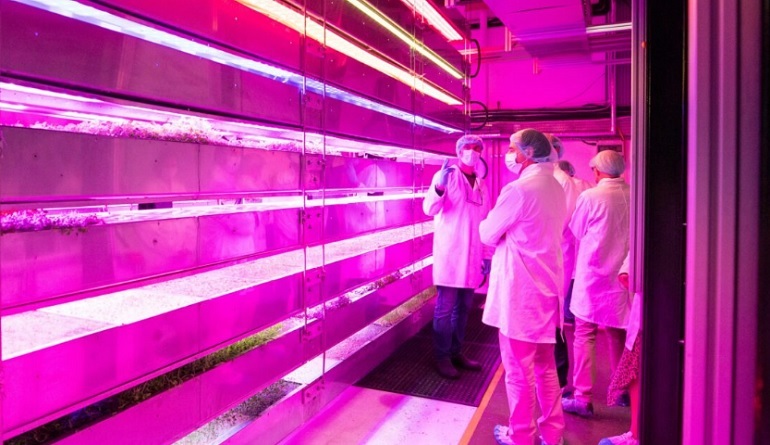
ATM News Network: Vertical Future, a pioneering UK-based vertical farming R&D company, has unveiled an ambitious initiative that could reshape the future of space exploration. The company has secured a research grant from the UK Space Agency to develop a cutting-edge Controlled Environment Agriculture (CEA) facility designed to support space exploration missions.
Vertical Future will lead the UK Space Agency project in partnership with a consortium of international experts in plant biology and space technology, including Axiom Space, Saber Astronautics, the University of Southern Queensland, and research collaborators from the University of Adelaide and the University of Cambridge. This groundbreaking collaboration will position Vertical Future as the first UK-based agri-space sector participant.
There will be two phases to this project. Phase one of the project will focus on researching and designing a fully-autonomous agriculture system. This system will be capable of remote monitoring and operation, harnessing artificial intelligence to support space exploration missions, including upcoming Moon-to-Mars Artemis endeavours. Vertical Future's team will collaborate with NASA's Kennedy Space Centre to define specifications for the CEA facility, addressing challenges unique to deep space conditions.
In Phase Two, the developed CEA system will be deployed both on the International Space Station (ISS) and on Axiom Space's forthcoming commercial space station. This innovative approach aims to lay the foundation for future space agricultural systems that can operate autonomously and sustainably.
The research and technology developed through this project will have far-reaching implications for Earth as well. By enhancing the efficiency of Controlled Environment Agriculture (CEA) systems, such as vertical farms, this initiative could usher in a new era of sustainable food production. Vertical farms are already known for producing high-quality, weather-independent produce, reducing supply chain disruptions, and resource consumption.
Dr Jennifer Bromley, Chief Scientific Officer at Vertical Future, highlighted the importance of the project's dual impact, stating, "Access to nutritious and fresh produce is vital for overall well-being. This project not only addresses the dietary needs of astronauts but also lays the groundwork for efficient food production methods on Earth."
Collaboration for Progress:
The UK Space Agency's Chief Executive, Dr Paul Bate, emphasized the significance of such collaborations in pushing the boundaries of space innovation. This initiative demonstrates the power of international partnerships and their potential to drive economic growth and scientific advancement.
Vertical Future's collaboration with experts from around the world signifies a step forward in agricultural technology for space exploration and underscores the potential for innovation with broader benefits here on Earth.
As the realms of technology and agriculture merge, Vertical Future's pioneering endeavour promises to extend the frontiers of exploration while redefining sustainable food production practices for generations to come.